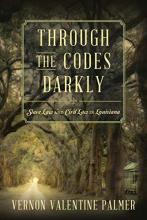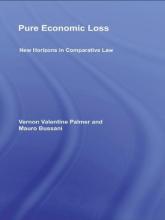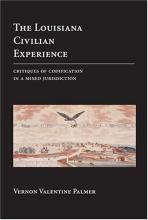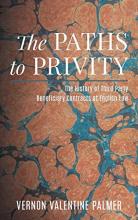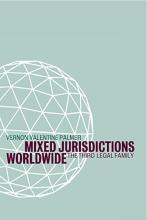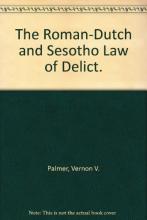Vernon Palmer
Thomas Pickles Chair, Co-Director, Eason Weinmann Center for Comparative Law
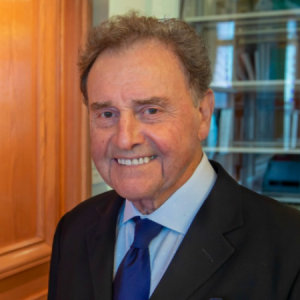
Biography
Vernon Valentine Palmer, who specializes in comparative law and European and French civil law, has been teaching and researching for 46 years, including extensive work abroad in France, Germany, Spain, Italy, Switzerland, Japan and Africa.
In recognition of his contributions to the field of comparative law, Paris-Dauphine University conferred upon him the title Docteur Honoris Causa in 2012. In 2006, then-French President Jacques Chirac knighted Palmer as a “chevalier” in the French Legion of Honor, the country’s highest civilian award, recognizing his work to build stronger ties between the United States and France. Earlier in his career Palmer received from the French Prime Minister the Palmes Académiques. Palmer has written more than 40 books and articles, focusing his research on the comparative law of obligations, code revision, delictual liability and third-party beneficiary contracts. He is the author of Through the Codes Darkly: Slave Law and Civil Law in Louisiana (The Lawbook Exchange 2012) and editor of Mixed Jurisdictions Worldwide (Cambridge University Press 2nd edition 2012), the leading text in the field. He has spent 42 years on the Tulane Law faculty. He received the Sumter Marks Award in 2000 and 2001 in recognition of his research. And in 2005, he received the Tulane University Provost’s Award for Excellence in Research and Scholarship. In 1986-87 and 1992-93, Palmer held the Chair of Common Law at the University of Paris (Sorbonne), and has been a Visiting Professor of Comparative Law at Bucerius Law School in Hamburg; the Ramon Llull University in Barcelona; the University of Trent in Trento, Italy; the University of Lausanne; the University of Geneva; and the University of Fribourg. He was organizing chair of the First Worldwide Congress on Mixed Jurisdictions, held in New Orleans in 2002, and is the founder and President of the World Society of Mixed Jurisdiction Jurists. In 2003, he was elected a titulary member of the International Academy of Comparative Law at the Hague.
Education
Pembroke College, Oxford University
Yale University
Tulane University
Tulane University
Accomplishments
Docteur en Droit (honoris causa) Paris-Dauphine University
2013
French Legion of Honor, (Chevalier) Paris
2007
Provost’s Award for Scholarship and Research, Tulane
2005
Articles
Double Reasoning in the Codified Mixed Systems - Code and Case Law as Simultaneous Methods
2012
The mixed jurisdiction judges use the code and the case law in various combinations to produce a system of double reasoning. Where the texts contain principles (rather than rules) and hence are particularly wide, the judges of the codified systems are prone to use two methods at once. The field of tort law, presided over by the tort General Clause, serves as one area par excellence to observe this phenomenon, but dual reasoning will be used in all branches of law and in all legal systems where the texts or terminology are of similar breadth. Judges begin analysis with the relevant and initially controlling general code provision and then appear to be deducing their way toward a conclusion based upon that codal premise. However, they frequently cannot finalize a syllogism (or rather the series of syllogisms involved) from the text tout court. The text offers no more than undefined words like "fault" or "causation" in articulating its principle, and it may even be considered a standard too nebulous to be called a principle. The judges frequently need an additional rule ab extra to serve as a subordinate premise to fill the inter-space in the logic. There are at least three distinguishable types of jurisprudence that fill this inter-space. The first is what is popularly called the Seminal or Leading case, the second may be described as the Concretizing case, and the third may be called the Lacuna-Filling case. The study of these three types will indicate that the judge under a code pays such close attention to the "facts" and "rules" generated by such cases that it is sometimes difficult to distinguish the reasoning from that of a common law jurist operating without a Civil Code.
The Recusal of American Judges in the Post-Caperton Era: An Empirical Assessment of the Risk of Actual Bias in Decisions Involving Campaign Contributors
2010
This article is an empirical investigation of the relation between campaign contributions and the ability of elected judges to remain impartial in their rulings. Its principal aim is to assess the risk to impartiality that unrecused rulings in favor of contributors may entail. The tense if not conflictual relationship between campaign support and judicial detachment became a national issue in 2009 when the Supreme Court ruled, for the first time, in Caperton v. A.T. Massey Coal Co., that a state judge’s refusal to disqualify himself after receiving extraordinary campaign support from a litigant violated the Due Process Clause of the Constitution. The present study, building upon the approach charted in Caperton, focuses in depth upon one state supreme court’s experience with contributor cases. The study follows the voting behavior of the seven Justices of the Louisiana Supreme Court (as constituted in 2006) over a 14-year period. The carefully checked database, consisting of more than 10,000 entries derived from 177 cases involving contributors, presents striking insights about the risks involved in unrecused voting. The entire database is included with the article. Far from undermining Caperton’s thesis, it demonstrates that far smaller contributions also create a risk of actual bias and that the relative size of a donation, in comparison to overall campaign funds and expenditures, is not a necessary component of the risk. The value-added of this empirical contribution to the national issue is essentially three-fold. First, it lays out a detailed factual tableau concerning the size, scope and timing of contributions. Here is a mine of vital information that may serve as a predicate for analysis and reform. Second, in line with the “risk” calculus charted in Caperton, the article presents statistical measurements and new methods of comparison to gauge the likelihood of actual bias in judicial voting behavior. The statistical calculations based on the data were verified and replicated by the Center for Empirical Research in the Law in St. Louis. Third, it carries the analysis beyond the relatively easy Caperton facts and examines the risk factor in the everyday cases before the courts. Thus, it addresses the typical and more difficult questions needing to be discussed and dealt with in the future, whether by the Supreme Court in revisiting the constitutional issue or by state legislatures, state courts and professional bodies in their reform efforts.
The Frontier between Contractual and Tortious Liability in Europe: Insights from the Case of Compensation for Pure Economic Loss
2010
Recoverability of pure economic losses stands at the cutting edge of many crucial questions, such as: To what extent should tort rules be compatible with the market orientation of the legal system? How far can tort liability expand without imposing excessive burdens upon individual activity? As a matter of policy should the recovery of pure economic loss be the domain principally of the law of contract? The paper pursues the goal of sketching possible answers to these questions as far as European jurisdictions are concerned. Thus, it first outlines the factual situations where a pure economic loss is likely to occur. The paper then discusses the broad spectrum of differing approaches to this kind of damage in Europe, as well as the basic arguments that favor an exclusionary rule. The survey makes it possible to understand what is common and what is different across European countries on this issue, as well as to evaluate whether, and how legal rules about pure economic loss might be harmonized throughout Europe.
